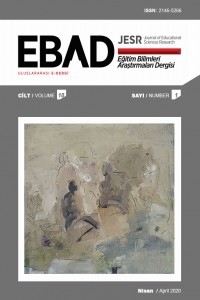The Dynamism of the Current Global (and Globalized) Moments: Implications for Teachers, Administrators, and Other
The Dynamism of the Current Global (and Globalized) Moments: Implications for Teachers, Administrators, and Other Educational Leaders
___
- Adler, M. (2013). Young people push back against gender categories. National Public Radio’s. All Things Considered, July 16, 2013. Available: http://www.npr.org/player/v2/ mediaPlayer.html?action=1&t=1&islist=false&id=202729367&m=202729369
- Amos, D. (2013). As doctors leave Syria, public health crisis looms. Weekend Edition Saturday, National Public Radio, June 29, 2013. Available: http://www.npr.org/2013/06/29/ 196911708/public-health-crisis-looms-in-syria
- Arendt, H. (1961). Between past and future: Eight exercises in political thought. New York: Viking Press.
- Biesta, G. J. J. (2010). Good education in an age of measurement: Ethics, politics, and democracy. Boulder, CO: Paradigm.
- Coser, L. A. (1974). Greedy institutions: Patterns of undivided commitment. New York: The Free Press.
- Garfinkel, H. (2002). Ethnomethodology’s program: Working out Durkheim’s aphorism. Lanhan: Rowman & Littlefield Publishers.
- Goffman, E. (1959). The presentation of self in everyday life. Harmonsworth, UK: Penguin.
- Hazony, Y. (2012). The philosophy of Hebrew scripture. Cambridge, UK: Cambridge University Press.
- Hodgin, G. (2013). IKEA designs new refugee shelters. The Take Away, June 21, 2013. Available: http://www.thetakeaway.org/2013/jun/21/ikea-designs-new-refugee-shelters/
- Kahneman, D. (2011). Thinking, fast and slow. New York: Farrar, Straus and Giroux.
- Murphy, J. (2002, April). Rapprochement between instructional supervision and administration. Paper presented to the business meeting of the Instructional Leadership and Supervision Special Interest Group of the American Educational Research Association. New Orleans,La.
- Oliva, P. F. (1989). Supervision for today’s schools (3rd ed.). New York: Longman.
- Pajak, E. F. (1989). The central office supervisor of curriculum and instruction: Setting the stage for success. Boston: Allyn & Bacon.
- Rancière, J. (2004). The politics of aesthetics. (G. Rockhill, trans.). London: Continuum.
- Rancière, J. (2010). Dissensus: On politics and aesthetics. (S. Corcoran, trans.). London: Continuum.
- Simmel, G. (1950). The field of sociology. In The sociology of Georg Simmel (pp. 3-25). K. H. Wolff (trans., ed.). London: Collier-Macmillan Limited.
- Waite, D. (2009a). LDR 2 LDR: University faculty communicating practice through theory. Journal of Leadership Studies, 3 (2), 56-57.
- Waite, D. (2009b). Teaching theory: A response to Nelson, Henry, Holcomb, Guajardo, and Jenlink. Journal of Leadership Studies, 3 (2), 79-83.
- Waite, D. (2012). Who controls our knowledge? International Journal of Leadership in Education, 15, 505-508.
- Waite, D. (in press a). Imperial hubris: The dark heart of leadership. Journal of School Leadership.
- Waite, D. (in press b). Teaching the unteachable: Some issues of qualitative research pedagogy. Qualitative Inquiry.
- Whitman, W. (1885/2013). Leaves of grass. Originally published in 1885 by Whitman, republished in 2013 by CreateSpace Independent Publishing Platform. https://www.createspace.com/
- Whyte, W. H. (1956/2002). The organization man. Originally published by Simon and Schuster, New York, later edition published by University of Pennsylvania Press, Philadelphia, PA.
- Atıf için / Please cite as: Waite, D. (2013). The dynamism of the current global (and globalized) moments: implications for teachers, administrators, and other educational leaders. Eğitim Bilimleri Araştırmaları Dergisi
- Journal of Educational Sciences Research, 3 (2), 35–46. http://ebad-jesr.com/
- Başlangıç: 2011
- Yayıncı: Kürşad YILMAZ
Seda OKUMUŞ, Sedat AYDOĞDU, Bilge ÖZTÜRK, Yasemin KOÇ, Oylum ÇAVDAR, Kemal DOYMUŞ
Doktora programı: Türk üniversiteleri doktora programları için bazı öneriler
Tohit GÜNEŞ, Kazım ALAT, Ali İbrahim Can GÖZÜM
İlköğretim fen eğitiminde probleme dayalı öğrenme yaklaşımının üst düzey düşünme becerilerine etkisi
Kaynaştırma öğrencilerinin haklarına ilişkin sınıf öğretmenlerinin görüşleri
Funda NAYIR, Yasemin KARAMAN KEPENEKCİ
Okuduğunu anlamanın ölçülmesinde paragraftan anlam kurmaya dayalı çoktan seçmeli sorular
